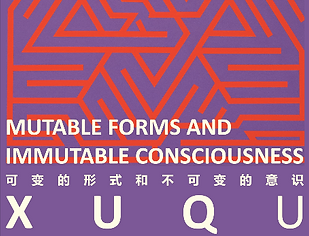XU QU
Born in 1978 in Jiangsu, China.
He currently lives and works in Beijing.
Xu Qu graduated with a BFA from Nanjing Art Institute in 2002 and an MFA in Fine Arts and Film at Braunschweig University of Art, Germany in 2008 before moving to Beijing, where he currently lives and works. Known for his original multiform approach and richly varied work, Xu Qu is one of the most interesting creative talents from the new generation of young Chinese artists who grew up in the 1980s. For over several years, Xu Qu has been exploring a wide range of mediums, such as videos, paintings, sculptures and installations that are questioning the reality of our global world and displaying an obsession with attraction for power relations. Xu Qu’s artistic practice has always been focused on the aesthetic considerations behind social connections through direct movements, achieving this through a minimalist approach. His works attempt to reorganize and heighten spaces of artistic production, utilizing painting and lighting to reconfigure spatial and temporal experience.
Exhibitions




Xu Qu Solo Exhibition - Straight Line
A HIT 瞬间
Mutable Forms and Immutable Consciousness
可变的形式和不可变的意识
3.15 - 4.30, 2014
Beijing
11.14, 2013 - 12.14, 2014
Beijing
Press / News

A HIT - Beili Wang
Whereas previously displaying his aesthetic intentions through social activities, Xu Qu dissociates his aesthetic conceptions into deconstruction of colour, abstract paintings or installations via a minimalist approach with this exhibition, and by extending the aesthetics that expand on his solo show “Mutable Forms and Immutable Consciousness” held in Bangkok in 2013.

Mutable Forms and Immutable Consciousness - Beili Wang
This project is an attempt by the artist to work within the tastes of the exotic, however the artist has not rigidly adhered to the cultural symbolism of dialogue or modes of social research. Rather, the artist follows his own typical aesthetic interests, beginning with designed action involving a process of ‘fangshan’, a traditional practice across Buddhist countries in Asia involving the release of captive fish into the rivers. This arises from sporadic behaviour such as the impact of natural ecologies, the understanding of the viewers in relation to the work, or also by the self-reflections of the audience. The artist avoids interference and merely works to provide clues, whilst he also refrains from specifically pointing to certain answers. For example with his series ‘Route’, his visual games lead to the viewer searching for entry and exit points, but they are based on the viewer’s individual experience or collective memory – this can also be understood within the terms of certain texture of abstraction found in Asia.




